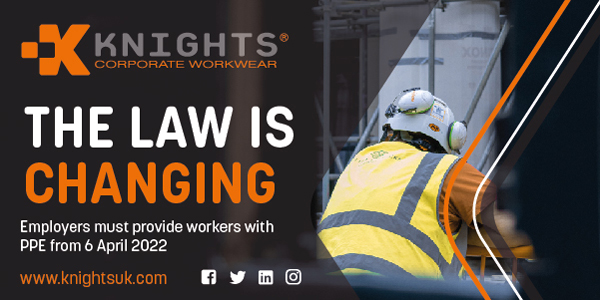Casual workers need to be well-dressed
Feb 8 2022 10:23AM

A lot of people will recognise April 6th as the first day of the tax year, but this year, there’s a change happening on that date that’s designed to protect much more than HMRC’s revenue streams.
This change is to the regulations on personal protective equipment (PPE). It’s not a change as such, but an extension. Employers will now have to provide PPE to casual workers as well as to employees.
As usual, the regulations are full of detail and specific terms, but this change should be quite easy for employers to grasp and implement. If they know about it, that is. We’ve spoken to a few businesses who weren’t aware of it but will be affected.
Who’s affected by the change?
The Personal Protective Equipment Regulations 2022 (PPER 22) defines workers as either limb (a) or limb (b). This has nothing to do with arms and legs but relates to whether the worker has a contract of employment. Limb (a) workers do, and employers must already provide PPE if it’s required to keep them safe in the job.
Now, with the change, limb (b) workers must also be provided with PPE, training in its use and storage facilities, in the same way as those with a contract of employment.
So, what’s a limb (b) worker?
Well, earlier we described it as a casual worker, but employment status can be tricky to determine. Let’s explore some possibilities.
A limb (b) worker may:
- Have a contract to provide a service (verbal or written)
- Work for several organisations on a casual or irregular basis
- Be entitled to holiday pay after a month’s continuous service but do not enjoy other employment rights such as statutory notice periods
- Only work if they choose to
But a limb (b) worker isn’t in business for themselves and wouldn’t be classified as self-employed.
Are you ready for the change?
Employers now have a short window of time in which to assess whether the changed regulations will impact them. If they conduct a risk assessment on the activities of any limb (b) workers which indicates PPE is required, they must source suitable equipment and supply it free of charge.
For some employers, this won’t be an issue. Possibly they’re already protecting any limb (b) workers unaware that existing regulations haven’t demanded it. But for an employer reliant on a casual labour force, this could be significant.
These employers have just a few weeks now to assess risks, source suitable PPE, arrange for its maintenance and storage and train workers – even those just on-site for a day – in its correct use. And for clarity, all this must be done at the employer’s expense.
Remember: from 6th April 2022, all workers facing hazards need protection whether they have a formal contract of employment or not.
Yes, it’s short notice, but we have an extensive range of PPE available for swift delivery. We will be very happy to offer advice and help your business comply.
To find out more: https://www.hse.gov.uk/ppe/index.htm
